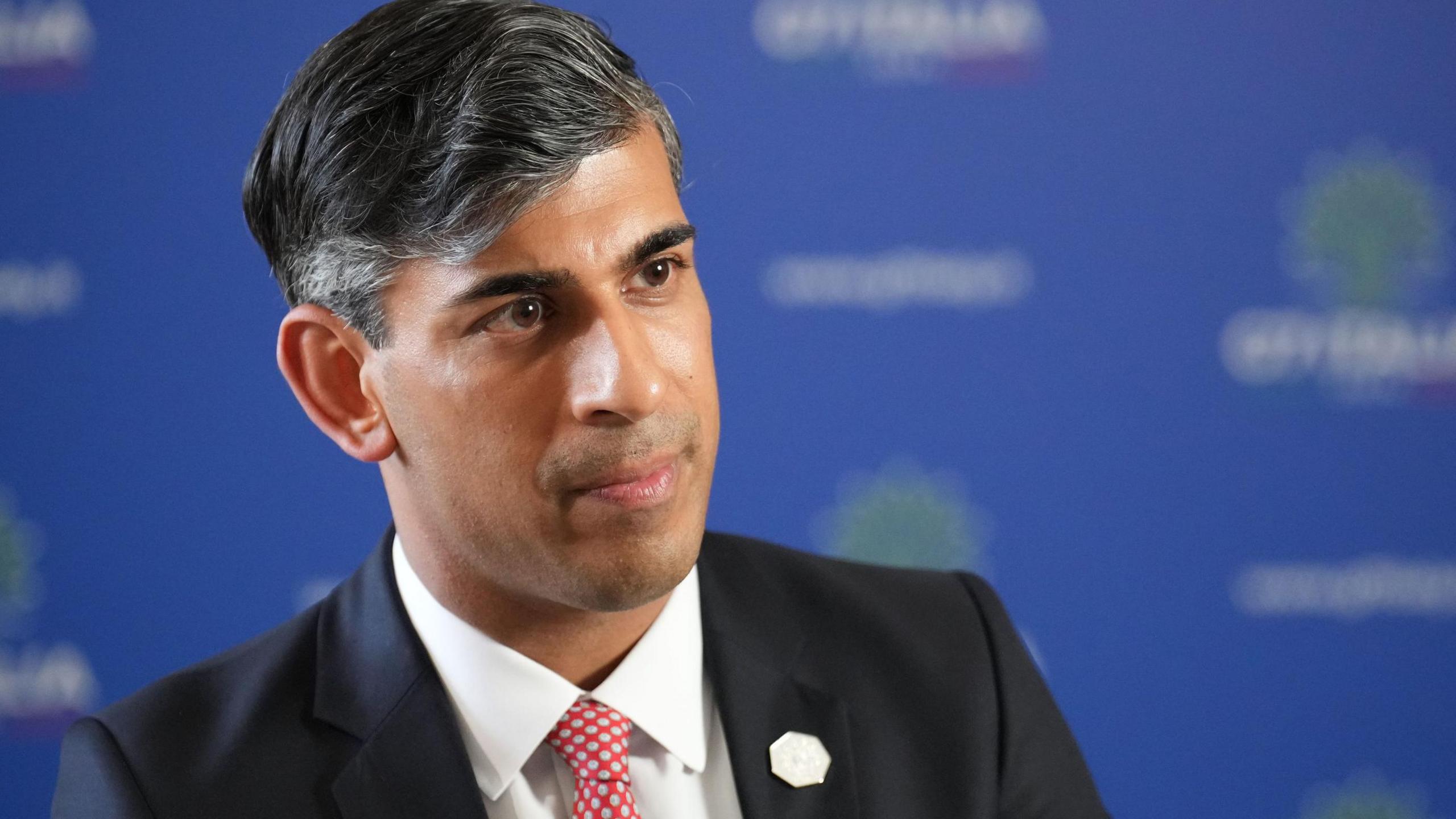Sunak accuses Labour of asking for a blank cheque

- Published
Rishi Sunak has attacked the plans in Labour's manifesto, accusing the party of asking the voters for a "blank cheque, without telling them what they are going to do with it".
Speaking from the G7 summit in Italy, the prime minister said Labour's proposals would see taxes rise to "the highest levels that we have seen in our nation's history".
He argued that by contrast his party 's manifesto was promising to cut taxes for people at "every stage of their life".
Launching his manifesto in Manchester, Labour leader Sir Keir Starmer said wealth creation was "the number one priority".
Labour has promised not to raise rates of income tax, National Insurance or VAT, as well as the main rate of corporation tax.
It has not made similar guarantees for capital gains tax, paid on profits from selling assets.
The party has committed to some tax rises including introducing VAT on private school fees and increasing taxes on bonuses for managers at hedge funds.
Speaking to the BBC after the launch Sir Keir said: “None of the plans that we've set out require any tax rises over and above those that we've already spelt out."
Starmer banks on economic growth to 'rebuild Britain'
- Published13 June 2024
Who is Labour leader Sir Keir Starmer?
- Published5 July 2024
Conservative manifesto: 12 key policies analysed
- Published12 June 2024
Responding to Labour's plans, Mr Sunak said: "You've seen two manifestos this week and there's a clear choice at this election.
"We published a manifesto that's going to cut taxes for people in this country, and the Labour manifesto made it clear that taxes are going to rise."
The Conservatives launched their manifesto earlier this week with a promise to reduce National Insurance.
Leader of the Scottish National Party John Swinney said Labour would "continue with spending cuts where the Tories left off".
The Green Party expressed similar concerns, with the party's co-leader Carla Denyer saying the party's "refusal to increase taxes on the super-rich means they will be forced to resort to more public spending cuts".
The left-wing campaign group Momentum said the manifesto pledges "fall short of what is needed" and expressed disappointment there was no promise to scrap the two-child benefit limit.
Paul Johnson, director of the public spending think tank the Institute for Fiscal Studies, said Labour's tax rises were "trivial" and that "delivering genuine change will almost certainly also require putting actual resources on the table".
He said the spending rules Labour had "signed up to" left the party with "literally no room... for any more spending than planned by the current government, and those plans do involve cuts both to investment spending and to spending on unprotected public services."
